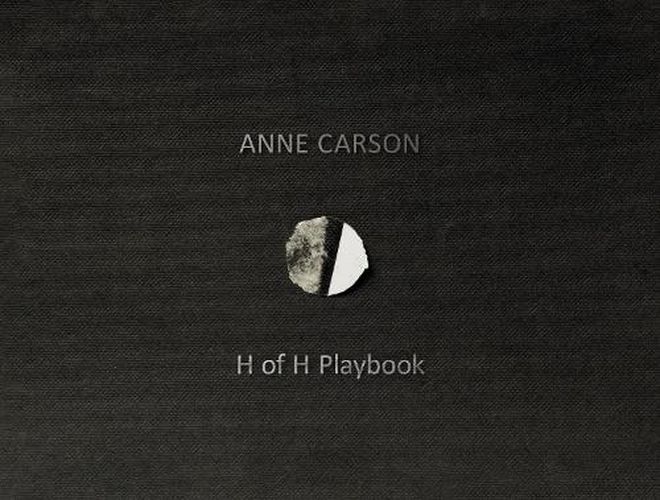Readings Newsletter
Become a Readings Member to make your shopping experience even easier.
Sign in or sign up for free!
You’re not far away from qualifying for FREE standard shipping within Australia
You’ve qualified for FREE standard shipping within Australia
The cart is loading…






A beautiful illustrated poetry book, reinterpreting the Greek myth of Herakles’ tenth labour, from one of the world’s most respected living poets
‘Fans of Anne Carson, rejoice!… Carson’s depth of knowledge about Greek mythology coupled with her poetic sensibility and illustrations is sure to breathe new life into this oft-told story.’ Lit Hub
H of H Playbook is an explosion of thought, in drawings and language, about a Greek tragedy called Herakles by the 5th-century BC poet Euripides. In myth Herakles is an embodiment of manly violence who returns home after years of making war on enemies and monsters (his famous Labours of Herakles ) to find he cannot adapt himself to a life of peacetime domesticity. He goes berserk and murders his whole family. Suicide is his next idea. Amazingly, this does not happen. Due to the intervention of his friend Theseus, Herakles comes to believe he is not, after all, indelibly stained by his own crimes, nor is his life without value. It remains for the reader to judge this redemptive outcome.
I think there is no such thing as an innocent landscape, said Anselm Kiefer, painter of forests grown tall on bones.
$9.00 standard shipping within Australia
FREE standard shipping within Australia for orders over $100.00
Express & International shipping calculated at checkout
A beautiful illustrated poetry book, reinterpreting the Greek myth of Herakles’ tenth labour, from one of the world’s most respected living poets
‘Fans of Anne Carson, rejoice!… Carson’s depth of knowledge about Greek mythology coupled with her poetic sensibility and illustrations is sure to breathe new life into this oft-told story.’ Lit Hub
H of H Playbook is an explosion of thought, in drawings and language, about a Greek tragedy called Herakles by the 5th-century BC poet Euripides. In myth Herakles is an embodiment of manly violence who returns home after years of making war on enemies and monsters (his famous Labours of Herakles ) to find he cannot adapt himself to a life of peacetime domesticity. He goes berserk and murders his whole family. Suicide is his next idea. Amazingly, this does not happen. Due to the intervention of his friend Theseus, Herakles comes to believe he is not, after all, indelibly stained by his own crimes, nor is his life without value. It remains for the reader to judge this redemptive outcome.
I think there is no such thing as an innocent landscape, said Anselm Kiefer, painter of forests grown tall on bones.